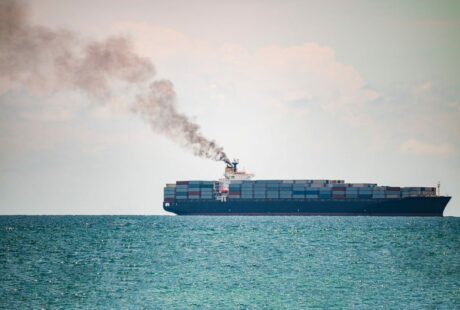Civil society groups have damned the International Maritime Organization (IMO) for failing to take action on the Arctic climate crisis, after plans to reduce black carbon emissions from shipping in the Arctic were bumped off the agenda of its Marine Environment Protection Committee meeting (MEPC76), which ended today.
“The IMO and its Member States failed at MEPC76 to carve out the time needed for the urgent development of the action necessary to reduce rising Arctic ship-source emissions of black carbon, a potent climate forcer”, said Dr Sian Prior, Lead Advisor to the Clean Arctic Alliance.
Black carbon, which is produced when ships burn oil-based fuels including heavy fuels, has a disproportionate impact in the Arctic, and causes increased melt when it settles out of the atmosphere onto snow and ice.
“As if this lack of action on black carbon was not bad news enough for the Arctic, the package of short-term energy efficiency measures to reduce greenhouse gas emissions agreed at MEPC76 is as good as useless”, said John Maggs, Senior Policy Advisor, Seas at Risk. “The measure contains no enforcement mechanism, and the level of ambition, a 1.5% annual improvement, was deliberately calibrated to be the same as what has happened historically and in the absence of regulation! The IMO must ensure a 7% annual improvement in efficiency to bring ship emissions down in a way consistent with the Paris Agreement’s 1.5C temperature goal.”
“If the global shipping industry was a country, it would be the world’s sixth biggest emitter of greenhouse gases. Yet as governments publish their Nationally Determined Contributions (NDCs) ahead of November’s COP26, the International Maritime Organisation, as shipping’s governing body has adopted measures that will do little or nothing to address the climate crisis – in the Arctic, for small island states, and around the world”, said Maggs.
During the meeting, the IMO also finally adopted a “ban” on the use and carriage of heavy fuel oil in Arctic waters, a measure previously condemned by the Clean Arctic Alliance as so weak that it will be another eight years before it has any real impact.
“An ambitious package of short-term measures to address emissions of CO2 is vital to slow-down and even reverse the climate changes being experienced by communities and wildlife in the Arctic. This week was the IMO’s last chance before COP26 convenes in Glasgow to show that its deliberations and decisions on the climate impact of international shipping – CO2 and black carbon – have any relevance to meeting the goals of the Paris Agreement”, said Prior.
“Despite this, the IMO abdicated all responsibility in this area by blowing its last chance to take meaningful and appropriate climate action ahead of COP26. To counter the weak regulations on greenhouse gases and heavy fuel oil adopted this week it is now necessary that the IMO put in place strict, ambitious plans to limit black carbon emissions – proportional to the scale of the climate crisis, and it must do this at the next opportunity – MEPC 77, which overlaps with COP26 in November”, she continued.
Posted on: 17 June 2021



